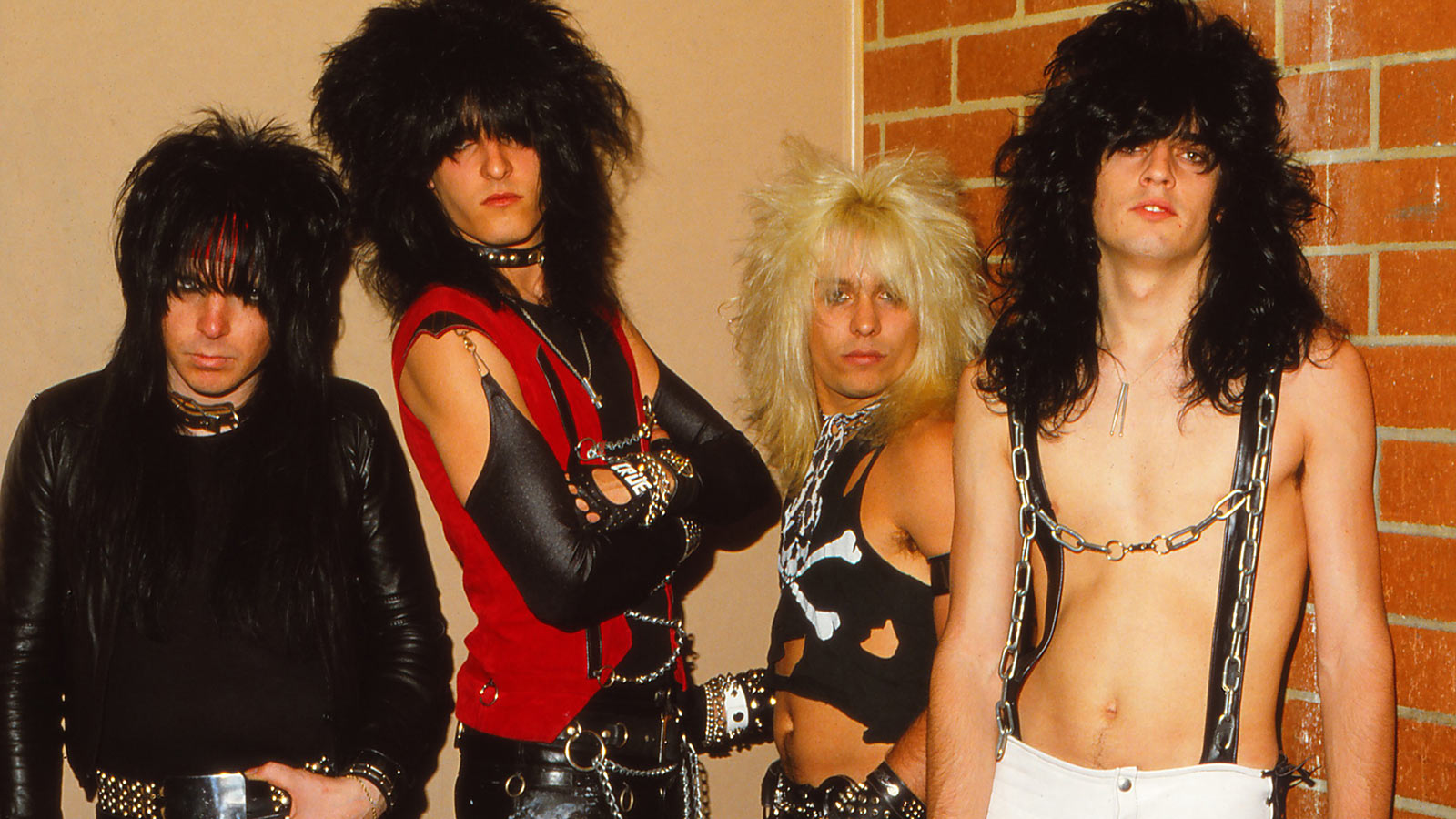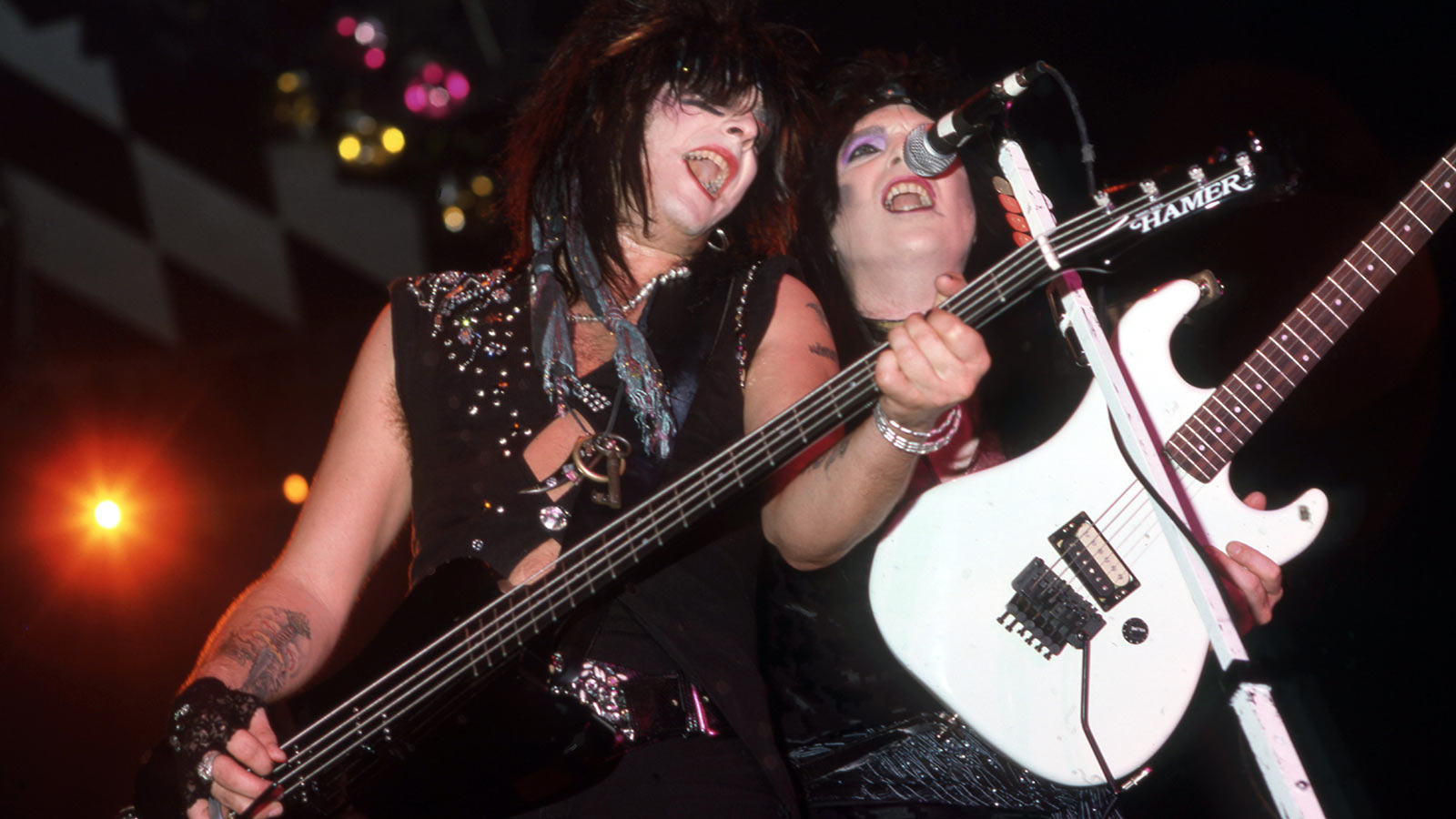Mötley Crüe’s Nikki Sixx: “My job is to support the song and be super tight with my drummer. If there’s any room in there, I might throw in something melodic”
The legendary Crüe and Sixx:AM bassist looks back on his musical journey and argues you can't get enough practice, nor can you go wrong when you let simple melodies serve the song

There are few people alive who can truly boast the title of ‘rock star’, but Frank Feranna, otherwise known as the infamous Nikki Sixx, bassist and founding member of metal icons Mötley Crüe and Sixx:AM, is one such person.
As well as being one of the most recognized bassists in rock, a best-selling author and photographer, Sixx has lived one of the loudest lives of any human in modern history.
Tales from this unique bassist’s life were graphically detailed in his previous memoir, The Heroin Diaries, in 2007. However, little is really known of his earlier years as a teenager and young adult before he hit it big with Mötley Crüe in 1981.
Not any more, though. The First 21: How I Became Nikki Sixx is the real autobiography fans have been waiting for. It was released last year alongside his band Sixx:AM’s Hits album.
“I don’t know if you’ve noticed, but the book was written by Frank Feranna and Nikki Sixx, so it’s a little psychotic – but I like to have fun with it,” laughs Sixx when we ask him about the new book.
I wanted to share to the world that a small-town kid could make it in Hollywood
“We moved to Wyoming a while back, and we have a lot of land and a big backdrop of the Teton mountain range; it’s something else. I grew up on the other side of those mountains in Idaho.
“I fell in love with music there, and when you find something you love, you can’t get enough of it, especially in those early years. I was out back looking over these mountains, and I just had this thought; it’s been 45 years since I was 17, back when I headed into the belly of the beast that was Hollywood.
Get The Pick Newsletter
All the latest guitar news, interviews, lessons, reviews, deals and more, direct to your inbox!

“I’ve always been inspired by my surroundings and by things that I see. I always jot things down, whether it be lyrics, an idea for a short story or a poem. I just really like to write. Back in the Seventies, I would have original songs: The guys would say at auditions, ‘There’s no money in original music!’ but I didn’t care. That’s when I found out that I wasn’t a basic bassist who stuck to doing Top 40 music covers.
“I formed my own bands, I started writing my own songs and my own lyrics, and I wanted to share to the world that a small-town kid could make it in Hollywood. That’s where the book ends, just before Mötley Crüe.”
Practice, practice, practice
As Sixx conjures up old memories by replaying his life, even he’s a little surprised by his own antics. Rather than sweeping his misdemeanors under the rug, he embraces all parts of his life, bad haircuts and all.
“Yeah, there’s a lot of lessons in the book. There’s a lot of mistakes I made when I was a kid and young adult. There are parts in there that got me thinking that I really sound like a criminal,” he says. “Moving from job to job, hustling door to door selling vacuum cleaners and all that, but I needed to pay for rehearsals and equipment.
“When I was in one of my earlier bands, London, we asked ourselves, ‘How are we going to make a small stage in a club look like an arena show?’ That isn’t cheap, but when you’re young you could go days without eating.
“Every day was about practice,” he continues. “Just practice, practice, practice, which is still one of my favorite things. When you’re at practice you don’t have big bombs going off, or lighting or video to worry about. You’re just standing in a circle, banging out the song, dusting off the bones, and getting the rust off. That’s my favorite feeling ever, man.”

Since we’re already down memory lane, does he remember his first steps into bass guitar? “My mom had this boyfriend way back when. He had this old flamenco gut-string guitar which he gave me, but it only had three strings.
“He had these big speakers and he would be playing everything under the sun – Sly & The Family Stone, Led Zeppelin, Olivia Newton John, Kiss. I was just blown away, so when I got this guitar, I would be mapping out notes that I would hear – it was really interesting to me.
My job is to support the song and be super tight with my drummer. If there’s any room in there, I might throw in something melodic
“I get grief sometimes from people who say, ‘Oh you’re not a real bass player because you’re not all over the place’, but I’m not like that,” he continues.
“My job is to support the song and be super tight with my drummer. If there’s any room in there, I might throw in something melodic, but generally I stay in the pocket, which I believe has something to do with that three-string guitar.
“I want to take one note and I want to maximize it, like how John Lennon wrote Strawberry Fields Forever. The melody in that song is relatively simple, but it changes and grows, taking you on a journey. I try to do that with our songs: To me, that’s so important.”
Ideas man
“For me, there’s always been a barrier between being traditional and following rules,” he says. “I play guitar badly, and I’ve written songs that are just three chords but which sound interesting. I’ve learned to try and be nobody else but me, which comes right from that simplicity.
“In general, I like adding all the layers to a song and that’s really exciting – watching it turn into something bigger. I’m not one of those musicians who has a full-blown studio in their house, and finishes everything and give it to the band. With Sixx:AM, we’re all in a band, which means we’re all in this together. I’ll come up to them and have a few ideas and then we just go from there. That’s my process.”
I’m always curious about what these other creative people are doing that’s different
How has he managed to stay creative after so long, we wonder? “It’s different for everybody,” he explains.
“I always carry a notepad and a pencil or something to write on, and I always have a camera. I feel like I’m open all the time. Say for example, I’m watching TV and see something interesting, I’ll pick up my bass and be like, ‘What is that?’ and then it turns into an idea.
“I run with it and show the guys, who will say, ‘Yeah, that’s great – how about we try adding this?’ It all builds from there. If I write seven songs in a week, even if I don’t record them, I’ll just write them down. Not because it’s my job: I just like to create stuff. This is my life and I love it. My friends say to me, ‘Hey Nikki, are you always going to be doing this?’ And I’m like, ‘Yeah, I don’t know any other way.’
Sixx remains as much a student of bass as the next player. “I think it’s important to listen to the music which you like – and maybe listen to music that you didn’t grow up with. If you didn’t listen to ABBA, Led Zeppelin or hip-hop, opening your ears now to anything and just listening makes a world of difference.
“It doesn’t mean I’m going to be a rapper or anything, but I’m always curious about what these other creative people are doing that’s different. In my case I’m really clear in what I want, which was one of the problems I had with auditioning for those Top 40 cover bands back in the day.”

Student of life
“I remember this one audition: We’d break into Cold As Ice by Foreigner, and the guy would be like, ‘You’re not playing it exactly like the record’. I didn’t even bother listening to the bass part before going in. My mentality was the song is in A, drops to D and it opens up on an F – what more do I need to know?
As a musician, you need to be in a position where you can go into any kind of session and fit in
“I always got fired because those bands were playing the songs exactly like they were on the record. I wasn’t very good at doing cover songs. In Mötley Crüe we would do a few here and there, but in general we didn’t really do that. I don’t want to go into band rehearsal to be like ‘Learn this and learn that’. That’s never been my thing.”
There’s just one more thing we have to ask. If he could go back and sit face to face with his 21-year-old self, what would he tell Frank Feranna to do differently?

“I feel if I could have done anything different, I wish I had gotten lessons when I was younger. It would have been one of the best things for me. I wish I could have had that kind of support musically, which I don’t mean in a negative way. People always ask me if they’re starting bass, what should they do, and my answer is always the same. Play to a metronome and take lessons.
“As a musician, you need to be in a position where you can go into any kind of session and fit in. When you take lessons, all the information is right there,” he concludes.
“I was taking lessons from this site called Scott’s Bass Lessons. I would go into the beginner’s section and I’d be like, ‘Okay sure, I know that, but what’s that interesting piece of information which I’ve never had?’ Then I’d wade through the more advanced stuff, and that’s where I started playing with my fingers more. I really enjoy that. I’m not sure I’ll be playing fingers with the band – but I enjoy it anyway.”
- The First 21: How I Became Nikki Sixx is out now via Little, Brown.
- Hits is out now via Better Noise Music.
“I asked him to get me four bass strings because I only had a $29 guitar from Sears”: Bootsy Collins is one of the all-time bass greats, but he started out on guitar. Here’s the sole reason why he switched
“I got that bass for $50 off this coke dealer. I don’t know what Jaco did to it, but he totally messed up the insides!” How Cro-Mags’ Harley Flanagan went from buying a Jaco Pastorius bass on the street to fronting one of hardcore’s most influential bands










